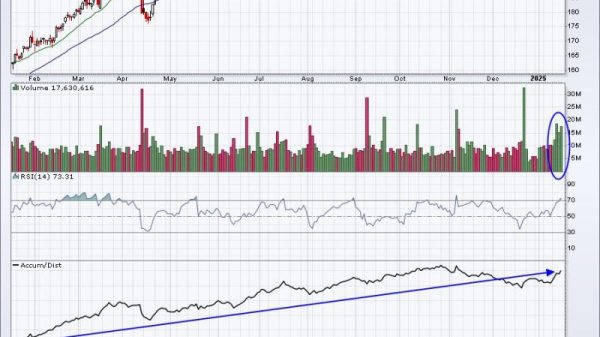Middle Eastern nations are bracing for the potential widening of the Israel-Hamas war amid threats by Iran to avenge the killing of Hamas’ political leader in Tehran last week.
Iran’s Supreme Leader Ayatollah Ali Khamenei vowed to retaliate against Israel for the assassination of the head of Hamas’ political bureau Ismail Haniyeh in Tehran on Wednesday. The country’s Islamic Revolutionary Guard Corps has warned that “blood vengeance” for the killing is “certain.”
Both Tehran and Hamas blame Israel for the killing but Israel hasn’t confirmed or denied involvement.
Hundreds of Lebanese prepared to flee the country as nations called on their citizens to leave Lebanon. The US embassy in Beirut on Saturday encouraged citizens who wish to depart “to book any ticket” as several airlines suspended or canceled flights to the country. In Israel, the government evaluated its preparedness and options should Iran and its regional proxies attack, while citizens stocked up on supplies in anticipation of an Iranian assault.
This week’s events could determine the course of the war in Gaza and significantly shift the focus away from the besieged enclave if retaliation by Iran escalates into a wider regional conflict involving the United States and other nations. Such escalation could also jeopardize efforts to reach a ceasefire in Gaza and release hostages, despite recent progress in negotiations.
Iran and Israel exchanged direct fire for the first time in April after a decades-long shadow war during which the two sides avoided striking each other’s territory. Iran launched 300 projectiles at Israel on April 13, accusing it of attacking its diplomatic building in Syria earlier that month. Israel responded with a limited strike on Iran. While the unprecedented exchange was contained at the time, another round of fighting may be harder to keep from escalating.
The US has boosted its preparedness to defend Israel in case of another Iranian attack. Israeli Defense Minister Yoav Gallant and US Secretary of Defense Lloyd Austin discussed comprehensive security strategies to protect Israel, according to a statement on Monday. The discussions included detailed scenarios outlining both defensive and offensive capabilities. And Michael Kurilla, the commander of US Central Command, is in the Middle East, according to a US defense official, who would not say what country Kurilla was in or whatever other countries he would be visiting.
In a last-ditch effort at diplomacy, regional countries have reached out to Iran to try to calm tensions. Jordanian Foreign Minister Ayman Safadi flew to Tehran on Sunday, a rare trip for a top official from the US-allied monarchy. Separately, Egypt’s Foreign Minister Badr Abdelatti called Iran’s Acting Foreign Minister Ali Bagheri Kani to discuss the “unprecedented and very dangerous” regional escalation, according to the Egyptian foreign ministry.
‘A major mistake’
But Iranian officials are not relenting. Iranian President Masoud Pezeshkian told Safadi that Haniyeh’s assassination was a “major mistake by the Zionist regime (Israel) that will not go unanswered,” according to Iranian state TV. In a weekly news conference in Tehran, Iranian foreign ministry spokesperson Nasser Kanaani said on Monday that the country is determined to deter Israel and that “no one should doubt” its resolve in doing so.
Israel could also face an attack from its northern front. Israel assassinated Fu’ad Shukr, a high-ranking Hezbollah commander, last week in response to the killing of 12 children with a rocket on the town of Majdal Shams in the Israeli-occupied Golan Heights. Hezbollah leader Hassan Nasrallah said Shukr’s killing “crossed red lines” and will be met with an “inevitable” response, hinting at coordination with other regional groups.
Israel Prime Minister Benjamin Netanyahu warned Iran “and its minions” on Sunday that his country was determined to “stand against them on every front and in every arena – far and near.”
“Anyone who harms us will pay a very heavy price,” Netanyahu said during a speech in Jerusalem. He reiterated his assertion that increasing military pressure on Hamas was the only way to achieve the goals of the war in Gaza and bring the hostages home.
Israel and Hamas have blamed each other for failure to reach a deal.
Anti-government rallies took place in several cities across Israel on Saturday, demanding a deal to secure the release of all hostages held in Gaza despite regional security threats.
Speaking at a weekly cabinet meeting on Sunday, Netanyahu said he instructed an Israeli delegation to leave for Cairo on Saturday to continue negotiations for a ceasefire and the exchange of hostages for Palestinian prisoners.
He said Israel had an “ironclad commitment” to return all hostages, adding that he’s “ready to go a long way” to win the release of all hostages while maintaining Israel’s security.
Israel was considering its options to prepare for a regional attack over the weekend. The government “is reviewing possible actions that would exact a price in the case of attempts by Iran and its proxies to attack Israel,” the Israeli defense ministry said in a statement on Sunday.
Gallant said Israel was “prepared very strongly in defense – on land and in the air and we are ready to move quickly to attack or to react,” insisting on the importance of readiness for a quick transition from defense to attack.
On Thursday, IDF spokesperson Daniel Hagari said that while the country had “very good defense systems” and international partners who have reinforced their deployment in the region, Israel’s defenses were “not hermetically sealed.”
Business as usual in Beirut
Meanwhile, residents of both Israel and Lebanon are preparing for a wider conflict. Major airlines suspended flights to both countries, leaving some Israeli travelers stranded abroad, and residents of Lebanon scrambledto get on flights out of the country.
The US embassy in Beirut said that some commercial options out of the country remained available despite several airlines suspending or canceling flights, and other flights selling out.
In the summer months, Lebanon is usually packed with visitors from abroad, mainly from the Lebanese diaspora, giving the country a much-needed economic boost. Many such travelers are considering cutting their vacations short and taking the first flight back home.
But even as the specter of war looms over the country, many are operating normally. Along Beirut’s seafront on Sunday, Arabic pop music blared through speakers as groups of men, beers in hand, sunbathed. Behind them, younger men practiced their diving skills in the Mediterranean Sea as children in floaties swam in the rocky sea.
Samer Othman, 51, said he doesn’t think the region is on the brink of an expanded war. “If we were to have war, it would have happened 10 months ago,” he said, referring to October, when Hezbollah launched cross border attacks on Israel after Israel launched a devastating assault on Gaza following the Hamas-led October 7 attack during which 1,200 people were killed and more than 250 taken hostage.
Walking shirtless on the corniche with his elderly father, Othman said a lifetime under multiple wars had strengthened him and his countrymen. “The country is used to problems and shocks. We can’t live in fear. Fear can only prevent you from living but it won’t prevent death.”
Others, however, were more jittery about the situation. A family was posing for pictures by the rooftop pool of a luxury Beirut hotel when two sonic booms sent them running for cover. They returned to the pool without the children when it turned out there was no airstrike. Israeli jets violating Lebanese airspace often break the sound barrier.
The country braces for war in its own way and tends to pick up after itself. Hours after Hezbollah supporters held a funeral procession for Shukr, the Hezbollah commander, Beirut’s skyline was lit with colorful fireworks coinciding with a concert on the other side of town.
On Sunday, thousands marched to Beirut port to mark four years since an explosion ripped through the city, killing more than 200 people. To this day, no one has been brought to justice. And with the prospect of war on the horizon, many say they don’t have confidence in their leaders or a choice in what comes next.
“This is not a leadership. It’s an existence-ship (sic). This is a situation that we have to live with unfortunately,” Liz Nicholas, 31, said, lowering the placard she’s holding at the march. “They don’t represent me. I don’t think of them as my government or my leadership. They just exist. And for some reason we have to be ok with it or live outside the country like most of us are doing.”
Israelis stock up on essentials
The Jerusalem municipality last week issued instructions on what to do in the event that the city comes under attack, distributing a file with a list of parking lots that will be used as shelters, and a list of bomb shelters. It said residents must be able to reach bomb shelters in 90 seconds. “Residents are advised to clean and prepare their bomb shelters in advance,” the file said.
Residents were advised to stock enough water and food for three days and to buy batteries and flashlights in addition to medications.
Several Israeli agencies and services have stepped up readiness. The emergency services Magen David Adom said it was prepared for every scenario after a three-day exercise “aimed at preparing for a potential war in the north and blackout scenarios. The exercise involved handling casualty events and “teams practiced a ‘blackout scenario’ with a focus on using satellite communication tools.”
Despite the preparations, many Israelis are continuing with their daily business.
In Tel Aviv’s Dizengoff Circus square, Rony Be’er, 75, walked with his friend, Ivana Reiser, 73, on Monday.
“They could hit us any minute now,” Be’er said. Asked what they are doing to prepare for a potential attack, he said: “We don’t do anything. We just walk.”
Baer and Reiser say that, like many Israelis, they have ready-made shelters at home used in other conflicts. Many of Israeli apartment buildings have built-in “safe rooms,” reinforced with concrete as thick as two feet, as well as heavy steel doors.
All Israeli buildings erected after 1993 are required to have bomb shelters. Cinemas, libraries and malls are also equipped with bomb shelters. Some remain closed but open automatically when sirens go off.
Theater students Roy Dror, 23, and Ron Heckmann, 26, say they’re not doing much to prepare for an attack, but know exactly where the shelters are should the sirens sound.
Heckmann, who grew up in the northern Israeli town of Nahariyah on the border with Lebanon, said he and his family “used to suffer a lot of bombs.” Compared to the north, he said, Tel Aviv feels safe.


































